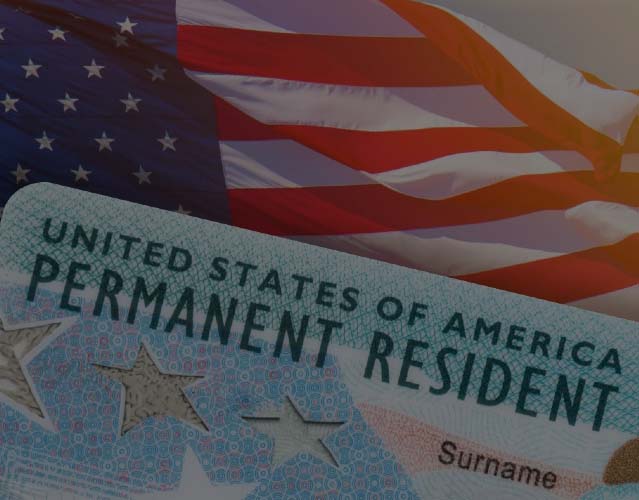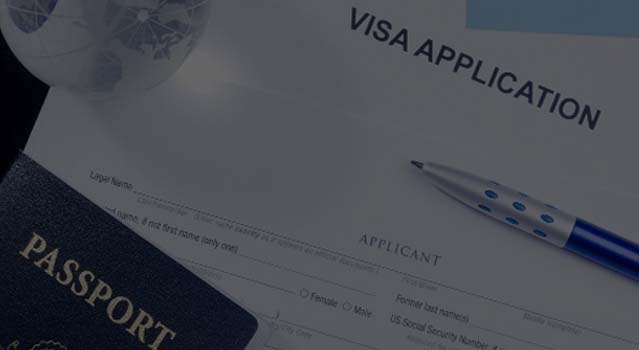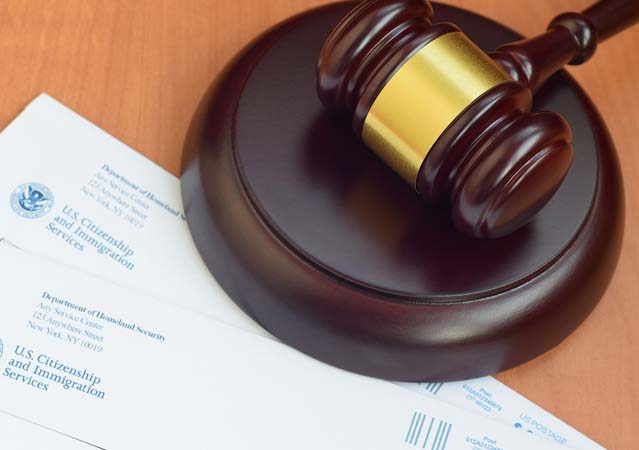Family based petitions: The steps to obtain a family-based green card — officially known as a permanent resident card — vary based on the qualifying family relationship and where you live (inside the United States or outside)It is helpful to understand that not all green card applications are treated the same way. Most categories must wait for a long period – this is because most categories have a limited number of immigrant visas (green cards) available each year. So typically, “family preference” categories must wait in line for a green card.
Adjustment of Status The adjustment of status path can only be used by certain immigrants that are already in the United States. Generally, this is limited to immediate relatives of U.S. citizens that are in the United States on a valid nonimmigrant visa and entered through lawful means. For example, a foreign student from Colombia and U.S. citizen get married. The Colombian spouse can immediately adjust status (provided that he/she is still in valid status with the student visa). Or, the Chinese parent(s) of a U.S. citizen with a tourist visa is visiting a son in the United States and make the decision to relocate to the U.S. permanently. The parent can adjust status to a permanent resident (green card holder).


Removal Defense cases before the Immigration Court and Board of Immigration Appeals: Removal defense involves representing and advocating for immigrants facing deportation from the United States. For many immigrants facing removal from the United States, the process involves appearing before an immigration judge in immigration court. Most immigrants cannot afford to have an attorney represent them in court. Sadly, legal representation is the single most important factor in determining whether someone will win or lose their case.
Deferred Action for Childhood Arrivals (DACA) : is a policy that allows certain individuals who meet program requirements to get request a grant of deferred action.
Individuals who are granted DACA are able to renew their grant and are eligible for work authorization.Immigration Relief for Survivors of Domestic Violence and Other Crimes
Immigrant victims of certain crimes who have been helpful in a criminal investigation or prosecution may qualify for a visa that can lead to a green card. The ILRC’s practice manual entitled. The U Visa: Obtaining Status for Immigrant Victims of Crime is a comprehensive explanation of the law and application process that also includes sample materials and practice tips.
VAWA: Immigration Relief for Survivors of Domestic Violence and Other Crimes
VAWA allows an abused spouse or child of a U.S. Citizen or Lawful Permanent Resident or an abused parent of a U.S. Citizen to self-petition for lawful status in the United States, receive employment authorization, and access public benefits. VAWA provides domestic violence survivors with the means that are essential to escaping violence and establishing safe, independent lives . ILRC has co-authored.The VAWA Manual, a step-by-step guide to assist advocates working on VAWA cases.

Human trafficking survivors may be eligible for lawful status, employment authorization, and a potential path to permanent residency, but they are a unique population with diverse and resource-intensive needs. The ILRC publishes a guide,Representing Survivors of Human Trafficking, on special considerations when working with human trafficking victims.
If you are a U.S. citizen who wants to bring your foreign fiancé(e) to the United States in order to get married, you will need to file a Form I-129F, Petition For Alien Fiancé(e). This is the first step to obtaining a K-1 nonimmigrant visa for your fiancé(e). The K-1 nonimmigrant visa is also known as a fiancé(e) visa.
In order to obtain a K-1 fiancé(e) visa, you and your fiancé(e) must intend to marry each other within 90 days of your fiancé(e) entering the U.S as a K-1 nonimmigrant. Your marriage must be valid, meaning both you and your fiancé(e) have a bona fide intent to establish a life together and the marriage is not for the sole purpose of obtaining an immigration benefit.
If your fiancé(e) marries you within 90 days of being admitted to the United States as a K-1 nonimmigrant, he or she may apply for lawful permanent resident status in the United States (a Green Card).


Since March 4, 2013, certain immigrant visa applicants who are immediate relatives (spouses, children and parents) of U.S. citizens can apply for provisional unlawful presence waivers before they leave the United States for their consular interview. On August 29, 2016, the provisional unlawful presence waiver process was expanded to all individuals statutorily eligible for an immigrant visa and a waiver of inadmissibility for unlawful presence in the United States.
Aliens who are not eligible to adjust their status in the United States must travel abroad and obtain an immigrant visa. Individuals who have accrued more than 180 days of unlawful presence while in the United States must obtain a waiver of inadmissibility to overcome the unlawful presence bars under section 212(a)(9)(B) of the Immigration and Nationality Act before they can return. Typically, these aliens cannot apply for a waiver until after they have appeared for their immigrant visa interview abroad, and a Department of State (DOS) consular officer has determined that they are inadmissible to the United States
Every immigration case is unique, and an immigration attorney should be consulted before trying to navigate every changing laws found in immigration law.